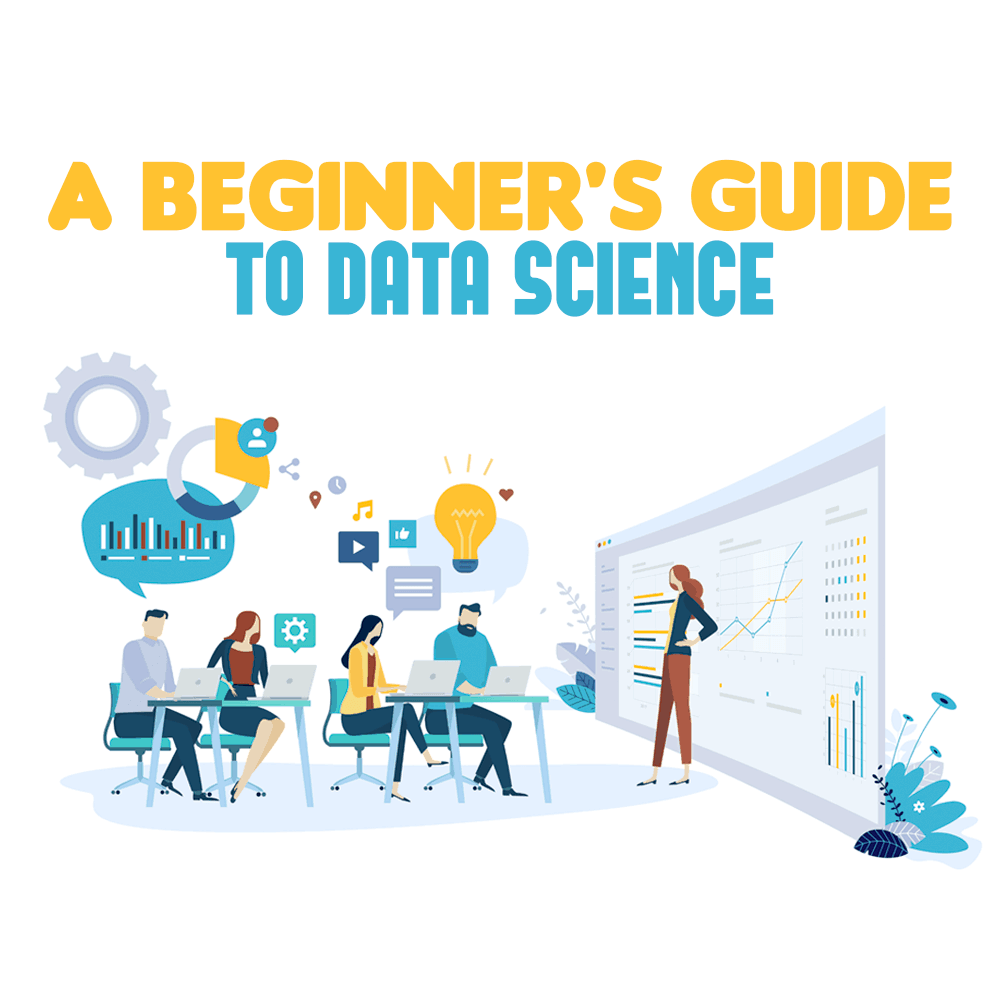
Have you ever wondered how Amazon’s search engines recommend ideal products for you to purchase, how Netflix suggests movies that you may want to watch, or how autonomous vehicles are able to safely take you from one place to another?
This is all because of data science.
Odds are that you have heard the term “data science” or “data is the new oil,” and maybe you even wondered whether or not pursuing this field is a viable career option.
Well, you’re in for a ride because data science is the career of the future. In fact, data science is creating substantial value for businesses worldwide and is the hottest field to be in right now.
To make life simpler for you and help you get a complete overview of this trending buzzword, I have compiled a data science guide with all the essential information about data science, including its definition and importance to businesses and the requisite skill set for becoming a data scientist.
So, let’s get right to it.
What in the World Is Data Science?
In a nutshell, data science refers to leveraging big-data—large amounts of unstructured data—as well as structured data, and converting it into actionable insights.
The “essential intelligence” derived through data science helps businesses solve problems, enhance efficiency, alleviate risks, boost revenue, make decisions with conviction based on logic rather than speculation, and in turn, gain a competitive advantage.
It goes without saying that data science has a pivotal role to play in every business department, be it finance, marketing, product development, sales, management, or HR.
Let’s just consider boosting software development processes’ productivity. Data science can not only help do that but also improve the final product by capturing and analyzing metrics such as stability of the code base, amount of branching, and number of pull requests and deploys, to name a few.
This throws speculation out the window by painting a clear picture of the current status and the improvements needed to deliver a specific, high-quality product in a particular time frame with minimal risks.
The world is becoming more complex, as well as dynamic, due to the fast pace of technological development. Companies are gathering significant amounts of data, be it from smartphones, machines, websites, social media, and the internet of things platform.
Data—the driver of change as well as growth—is increasing exponentially, according to The Economist. While back in 2013, the size of the digital universe was less than five zettabytes, come 2025, it will be around 180 zettabytes.
Although these heaps of raw data might seem useless to the naked eye, they are actually anything but.
The fascinating thing is that businesses worldwide are either not aware of the value that data science can bring or find it extremely challenging to clean raw data, properly analyze it, and eventually transform it into useful insights. This is precisely where data science and data scientists come into play.
An integral cog of the fourth industrial revolution, data science is disrupting the way we live, conduct research, make decisions, govern society, and do business. Hence, it is about time that professionals in various industries, developers in particular, start familiarizing themselves with data science.
Developers Better Get On Board
Data science is a multidisciplinary blend of mathematics, statistics, and computer science, as well as techniques such as data mining, data visualization, and machine learning. It requires a firm grip on not only technology, programming, and algorithmic development but also business acumen in addition to analytical skills.
The high demand of data scientists, intricacies of the job, and rigorous nature of data science programs means it is not a surprise at all that “data scientist” is the highest paid entry-level job in the U.S. this year, as pointed out by Glassdoor. Moreover, it has also been ranked as the best job in America for the fourth consecutive year.
Now, surely you’re thinking about how you—a professional, budding, or even experienced developer—can become a data scientist and benefit from all that this particular career offers, right?
Well, here’s how you can do just that:
Upskilling

The first step you can take is to start upskilling on programming languages R, Python, and SQL. These are the languages extensively used in the world of data science, and the sooner you master them, the better off you’ll be. From online courses to boot camps, you can opt for whatever is most convenient for you.
Applying Machine Learning
Next, you need to embrace machine learning and apply it. Unlike learning different programming languages where you just have to learn the new syntax, acquiring, as well as implementing, knowledge about machine learning is even more challenging.
However, with the right resources such as highly recommended online educational tracks, you can get a firm grip on the skills and concepts of machine learning that are closely associated with data science—i.e., data modeling, algorithmically deciphering patterns, and making predictions.
Staying Connected
In addition to this, staying connected with the data science community by going to the meetups, listening to podcasts, or working on actual projects can immensely benefit you in your journey to become a data scientist.
You can also join LinkedIn groups pertaining to data science and connect with like-minded individuals to enhance your learning. Plus, you should become an active member of online communities such as Stack Overflow by asking questions and sharing knowledge.
It’s vital that you remain focused and updated with the ever-evolving field that is data science. Don’t hesitate to experiment, iterate, learn, and unlearn, as only through these practices can you truly transform yourself from a developer into a data scientist.
The Future Is Here
The bottom line is that with the big data trend gathering tremendous momentum, the future of data science looks quite promising.
This, along with the fact that data science offers a convenient way of using data to uncover trends and information that help businesses substantially improve their systems, processes, and products and services, is why the job of data scientist is referred to as the sexiest job in the 21st century by the Harvard Business Review.
Now the ball is in your court. If you want to embrace the future and play a part in it, a good way to do that is to immerse yourself in the world of data science.
Remember, the moment you stop learning as a professional is the moment your career begins to plummet. So commit yourself to life-long learning, and delve deeper into data science.
